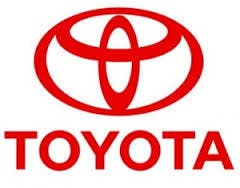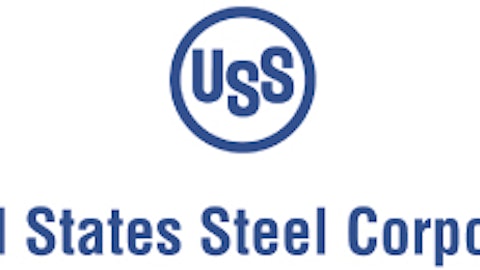You may be aware of Abenomics by now, including Japanese Prime Minister Abe’s plan to devalue the yen. The yen has fallen from $.0116 to about $.01 so far this year. Toyota Motor Corporation (ADR) (NYSE:TM)’s most recent annual report (2012) is full of plans to remain profitable despite the yen. All of a sudden, it does not have that problem. Its most recent financial results were quite good with revenue up by 18.7% and operating income up by 271.4%.
In other words, the macroeconomic picture is making Toyota’s outlook rather rosy. Or is it? First, devaluing the yen does not make Japanese cars any cheaper for Japanese buyers. In fact, it will likely induce some inflation above average wage increases and thereby reduce the amount of money Japanese buyers have to spend money on cars. This could be offset by higher employment. Essentially, if Abenomics pays off, it will help Toyota Motor Corporation (ADR) (NYSE:TM) long-term, but if it does not, it will hurt. This might put a significant damper on Toyota’s plans in Japan, which makes up 60% of Toyota’s market by revenue (Annual Report). Some of you may say fine, Toyota Motor Corporation (ADR) (NYSE:TM) is an export-based blue chip: the point of the devaluation wasn’t to spike Japanese sales.
Toyota’s more than the yen
Not so fast. Toyota Motor Corporation (ADR) (NYSE:TM) produces a total of 5 million cars overseas, more than the 3 million it produces in Japan. In other words, the majority of Toyota’s cars receive no pricing advantage as a result of the devaluation. Furthermore, what is Toyota’s second biggest market? North America, which represents 25% of its revenues. Toyota has not been doing that well in the United States. Its regional quarterly profit there was less than a billion dollars, and its sales fell in April for the first time in 18 months. Most troubling, the Camry, America’s best selling car for over a decade, was outsold for its second consecutive month. This is occurring at a time, when some American car manufacturers are having a hey-day. Ford Motor Company (NYSE:F) , for example, recorded its highest profits in a long time.
Well, then what about China? The news here is pretty disappointing as well. Toyota Motor Corporation (ADR) (NYSE:TM) was only able to realize 4.4% year-over-year increase. In comparison, Ford Motor Company (NYSE:F) reported a year-over-year increase of 54%, which is over 12 times as large. Toyota is doing better in India, whose growth powered a 5.7% increase for Asia as a whole, but the Chinese report is still quite troubling. To sum it up, Toyota is facing significant headwinds in Japan and North America, which together comprise 85% of its market. Furthermore, it isn’t roaring ahead in China, soon to be the world’s largest automobile market. It did well over fiscal year 2013 because of the devaluation of the yen, but apart from that it’s facing some real troubles.
What about Honda?
Honda Motor Co Ltd (NYSE:HMC) is the third largest Japanese car manufacturer and a perennial contender in North America. Between 2012 and 2013, its revenue was up by 12% and its income was up by 31%. These numbers are quite respectable, although not as good as Toyota’s. It is doing well in North America with revenues up 24%, and its Japanese revenues are up by 13%. However, it faces the same problem in Japan that Toyota Motor Corporation (ADR) (NYSE:TM) does with the likely increased inflation around the corner. Furthermore, it doesn’t gain much with regard to America from the devaluation, because similar to Toyota, most of the cars intended for sale in the U.S. are produced there. Its Chinese performance is also disappointing with the most recent annual report (2012) announcing unit increases of only 2%. On the plus side, Honda Motor Co Ltd (NYSE:HMC) also sells motorcycles, and as such is aimed more down-market, which will be a strength in developing nations.
Better options
As mentioned earlier, Ford Motor Company (NYSE:F) has been having a very strong year. Its growth in China is nigh-on spectacular, and I don’t have to tell you that it is doing well here. For example, it sold about 71,000 F-Series trucks in May alone at about $10,000 in profit each. Furthermore, it is currently making significant investments in China and Europe, and so its current profit is not as high as it could be. In a few years, those investments will pay off, and it should be able to rake in the cash. Furthermore, for all it’s in the news, it is still relatively inexpensive with a P/E of only 10.67.
General Motors Company (NYSE:GM) is a shakier bet than Ford. It sold less vehicles in the most recent quarter than it had the year before. However, one of the reasons Ford Motor Company (NYSE:F) has been doing well is that it has released a number of updated vehicles recently, and so it has some of the best vehicles on the market. However, General Motors Company (NYSE:GM) had not done so because of the lingering effects of the bankruptcy. It will soon introduce several updated models, including a new Silverado. This strategy is starting to pay off for Ford, and there’s no reason that it won’t pay off for General Motors Company (NYSE:GM) as well. Furthermore, General Motors currently has 12.4% market share in China, and so its car sales should see significant secular growth.
To sum things up, Toyota Motor Corporation (ADR) (NYSE:TM) and Honda Motor Co Ltd (NYSE:HMC) will certainly benefit from the devaluation of the yen. However, they won’t benefit as much as it first appears because of their substantial production overseas and substantial Japanese revenues. Furthermore, they’re losing market share in the United States and aren’t positioned extremely well in China. Ford Motor Company (NYSE:F) and General Motors Company (NYSE:GM) on the other hand are doing, or soon should be doing, well in the United States and are well-positioned in China.
Paul Sangrey has no position in any stocks mentioned. The Motley Fool recommends Ford and General Motors Company (NYSE:GM). The Motley Fool owns shares of Ford Motor Company (NYSE:F).
The article Will the Falling Yen Save Japanese Automakers? originally appeared on Fool.com.
Paul is a member of The Motley Fool Blog Network — entries represent the personal opinion of the blogger and are not formally edited.
Copyright © 1995 – 2013 The Motley Fool, LLC. All rights reserved. The Motley Fool has a disclosure policy.







